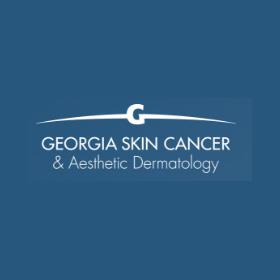About Dr. Ross Campbell, MD
Dr. Ross Campbell is board-certified by the American Board of Dermatology and has completed fellowship training in Mohs Surgery and Procedural Dermatology and served on the board of the American Society of Dermatologic Surgery. A magna cum laude graduate of The University of Georgia and the Medical College of Georgia, Dr. Campbell obtained a two-year fellowship grant from the National Institutes of Health (NIH) to investigate melanoma immunotherapy at Emory University. With an ultimate goal of opening a skin cancer and aesthetic surgery specialty center, Dr. Campbell chose to complete a general and plastic surgery internship in Seattle, before performing his dermatology residency at Brown Medical School where he served as Chief Resident. Although Mohs surgery can be performed by physicians without completing a fellowship, the pursuit of excellence in medical and surgical care led Dr. Campbell to spend an extra year of fellowship at one of the busiest and most acclaimed Mohs surgery and cosmetic dermatology practices in the country, under the directorship of Gary Monheit, M.D., and Chris Harmon, M.D. During his fellowship, which was a combined ACGME procedural dermatology fellowship, Dr. Campbell performed nearly 3,000 Mohs surgery cases and became an expert in aesthetic procedures such as blepharoplasty, hair transplantation, chemical peels, soft tissue fillers, dermabrasion, and Botox® Cosmetic. Dr. Campbell has lectured nationally, instructing dermatologists and plastic surgeons on various aspects of dermatologic and aesthetic surgery. He has published in numerous dermatologic and cosmetic surgery journals and authored several book chapters on surgical and cosmetic procedures. Most importantly, he has completed over 27,000 Mohs surgeries and has an infection and recurrence rate well below national statistics.
Patient Education Resources
Does the food I eat affect my acne?
There is some evidence to suggest that diet can play a role in the development of acne. Studies have found that a diet high in sugar and processed foods can increase the risk of developing acne. Diets...
There is some evidence to suggest that diet can play a role in the development of acne. Studies have found that a diet high in sugar and processed foods can increase the risk of developing acne. Diets...
Rosacea Medication Savings
Click on the image to access medication savings In most cases, this form must be submitted along with proof of having purchased the medication from the pharmacy. Offers may be time-limit...
Click on the image to access medication savings In most cases, this form must be submitted along with proof of having purchased the medication from the pharmacy. Offers may be time-limit...
What are some treatments to get rid of warts?
The best treatment for warts will depend on the type and location of the wart, as well as the patient's overall health and preferences. Some common treatment options for warts include:Salicylic ac...
The best treatment for warts will depend on the type and location of the wart, as well as the patient's overall health and preferences. Some common treatment options for warts include:Salicylic ac...
What can reduce the appearance of my acne scars?
Acne scars can be treated with a variety of methods, including:Topical treatments: Topical creams and gels containing ingredients such as retinoids, hydroquinone, and vitamin C can help to reduce the ...
Acne scars can be treated with a variety of methods, including:Topical treatments: Topical creams and gels containing ingredients such as retinoids, hydroquinone, and vitamin C can help to reduce the ...
What is the treatment for nail fungus?
Treatment for nail fungus (onychomycosis) can be challenging, as the fungus can be difficult to eliminate and may recur. Treatment options include:Topical antifungal medication: Over-the-counter antif...
Treatment for nail fungus (onychomycosis) can be challenging, as the fungus can be difficult to eliminate and may recur. Treatment options include:Topical antifungal medication: Over-the-counter antif...
Georgia Skin Cancer & Aesthetic Dermatology

The mission of Georgia Skin Cancer and Aesthetic Dermatology is to be the leading provider of specialized skin cancer treatment and aesthetic dermatology in the southeast.
Our commitment to excellence is demonstrated in the training and skills of our physicians and physician assistants, and the care provided by our entire team. We trust that you will notice a little something different about our practice and the personalized care you will receive.
Our commitment to excellence is demonstrated in the training and skills of our physicians and physician assistants, and the care provided by our entire team. We trust that you will notice a little something different about our practice and the personalized care you will receive.
